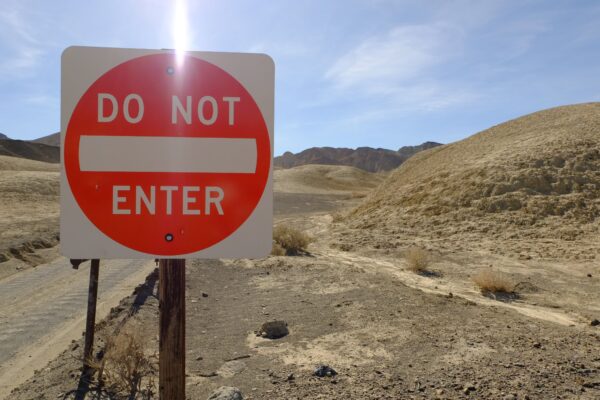How the Rich get Richer During COVID and What You Can do to Catch Up – IslamicFinanceGuru

7 min read
Published:
Updated:
IW
IFG Staff Writers
Covid has wrecked communities and destroyed economies. However, research has shown that over 5 million people became millionaires in 2020. This is despite many poor people becoming poorer. Moreover for the first time, over 1% of the world’s adults are now millionaires.
In this article, we will investigate how despite the economic turmoil of the pandemic, the rich have continued to get richer. We will also give you advice on how you can level the playing field.
If you would rather a watch a video on this subject, here’s our Youtube video on the topic.
How the wealth inequality gap continues to widen
There is one key strategy that helps the rich become richer whilst poor people get poorer. They hold a greater proportion of their wealth in assets.
A typical rich person will have investments in many different asset classes such as property, stocks, commodities, and startups. They usually only keep a relatively small amount of cash in reserve. On the other hand the poor tend to have most of their wealth in cash or as equity in their home.
Intuitively, this makes sense. If you have little disposable income, you are unlikely to be investing it in assets. Instead you want it ready to spend in case of any upcoming bills. A Bank of England survey conducted in 2011, revealed that the top 5% of households in the UK held an average of £175k worth of assets. Whilst half of all households did not hold more than £1.5k of assets.
This strategy is a winning one as assets have the potential to appreciate in price and/or pay dividends. This is exactly what has happened with assets such as stocks and property, which have boomed in the past year. In contrast, the purchasing power of cash tends to decline over time.
Why asset prices increased during COVID
In response to covid, governments and central banks adopted two key measures to support the economy.
1. They pumped billions into the economy
Aside from taxation, governments raise money by selling bonds. Bonds are a promise to pay a certain amount to the buyer in the future and in the meantime they can collect interest. Big financial institutions such as banks and private investors are the main buyers of government bonds.
However in times of crisis, the central bank is the main buyer and they do so by electronically creating new money. This is known as quantitative easing (QE), where the aim is to encourage spending and investment. This pushes asset prices up and causes interest rates to go down.
A key point to note is that when the central bank buys the bonds, it buys them directly from banks and institutions. The hope being this wealth would trickle down. However these banks and institutions usually just take the money and pump it into the asset markets, causing prices to go up. This is part of the reason why the stock and property market have kept rising over the pandemic. The Bank of England themselves conceded that QE benefits the wealthy more.
2. They lowered interest rates
Modern economies are intertwined with interest rates, given the prevalence of debt-based finance. As such, interest rates have huge monetary significance. What is particularly relevant to us is the link between interest rates and asset prices.
When interest rates are low, savers are forced to look for better returns elsewhere. This in turn drives demands for assets such as stocks and shares. Moreover cheap access to loans through lower interest rates can also boost demand for mortgages. With this in mind, it’s no wonder the markets have been booming over the past year.
The problem with cash
If you don’t invest in assets however you will be leaving your money in cash. But that’s an issue.
Money loses value every year because of inflation. Inflation is the rate at which prices in an economy increase. Economists measure this by tracking the price of thousands of everyday items. Central banks want a small amount of inflation as they believe it encourages spending. However high inflation rates are seen as bad for the economy. Therefore central banks exert a lot of effort to try to achieve an optimal level of inflation (in the UK this level is seen as 2%).
There are different theories on what causes inflation. Popular ones include the increasing costs of production or an aggregate rise of demand, for goods and services. The other main theory is that expanding the monetary supply is what causes inflation. The more money in circulation, the less your pot of money is worth.
The response to covid will likely accelerate the rate of inflation. Governments across the world are printing money at unprecedented rates.
This has led to many economists warning of increased inflation. Many also see inflation caused by the expansion of the monetary supply as like a hidden tax.
Governments realise that raising taxes would be an unpopular move and so instead go down the bond route to raise money. As a result the purchasing power of cash declines. This is why it’s crucial to invest your money (if you can) in assets that can appreciate.
What you can do to level the playing field
Here are three simple steps you can take.
1. Prioritise becoming financially literate
The first step is to educate yourself on investing. There are two main components to this.
- Establish what your risk tolerance is and what your investing goals are.
- Risk tolerance is the amount of variability in investing returns you are able to stomach. Someone with a high tolerance will be able to tolerate huge losses on an investment as they accept this is the risk you take when going for high potential investments. Meanwhile a low risk tolerance means that you are not comfortable with big losses and want to target more steadier investments.
- Have a plan for what you want to achieve and only invest what you can afford to.
- If you are really nervous about investing, check out our article addressing the most common concerns people have.
- Understand all the different asset classes that are out there.
- This can help you to make sure that you are only considering sharia-compliant investments.
- We have published tons of free articles on an array of different asset classes. A good place to start is our Halal Investing 101 Guides.
2. Don’t just hold cash, invest in assets
Once you are armed with knowledge, the next step is to put it into practice. The good news is that it has never been easier for the everyday person to invest.
Technology has democratised many areas of the financial markets that have previously been hard to get into. You can invest into asset classes such as property and stocks and shares with as little as £10-£100.
We are also trying to do our bit and recently lowered our minimum investment to £1500 for our angel syndicate IFG.VC. This is where we source the best sharia-compliant startups that we invest alongside you with. For more information on these and other investing ideas, check out our halal investment comparison engine.
It is good practice to keep aside an emergency fund that could cover at least six months of expenses before investing. Also first consider paying off any debts you have.
3. Play into the themes of the future
Successful investors are those who are able to figure out what areas will have value in the future. They then make smart investments into those spaces. So the takeaway here is to position yourself to take advantage of future themes.
For those looking to find companies, some popular investing themes at the moment include technology or clean energy (this is the latest flavour of our Fund Replicator by the way, so you can invest in sharia-compliant stocks within this theme). If property is your focus, look into which areas are likely to be popular in ten years. You get the picture. Try to avoid getting carried away by the hype. Due diligence is still key as not all ideas will be winners.
Summary
So there we have it. The rich get richer because they invest more of their money into assets. Once you understand how the current systems rewards asset holders and penalises cash holders, you can see how this would be a great strategy. The good news is levelling the playing field is not that difficult.
However, don’t go about it alone. Start conversations with your friends and family. Share this article for starters. The more knowledge-sharing we do with rest of our community, the quicker we can progress as a collective. This is an area we are really passionate about as promoting financial literacy is a key part of our mission at IFG.
We hope this article has been of benefit for you. If you’re ready to start investing, our halal investment comparison engine is the place to go.
References
Related Articles
View all
We are Khabib Nurmagomedov’s People: A Nation of Dreamers – IslamicFinanceGuru
31 May 2022 8 min read

Pandora Papers | Islam’s Approach to Tax Avoidance
31 May 2022 13 min read


